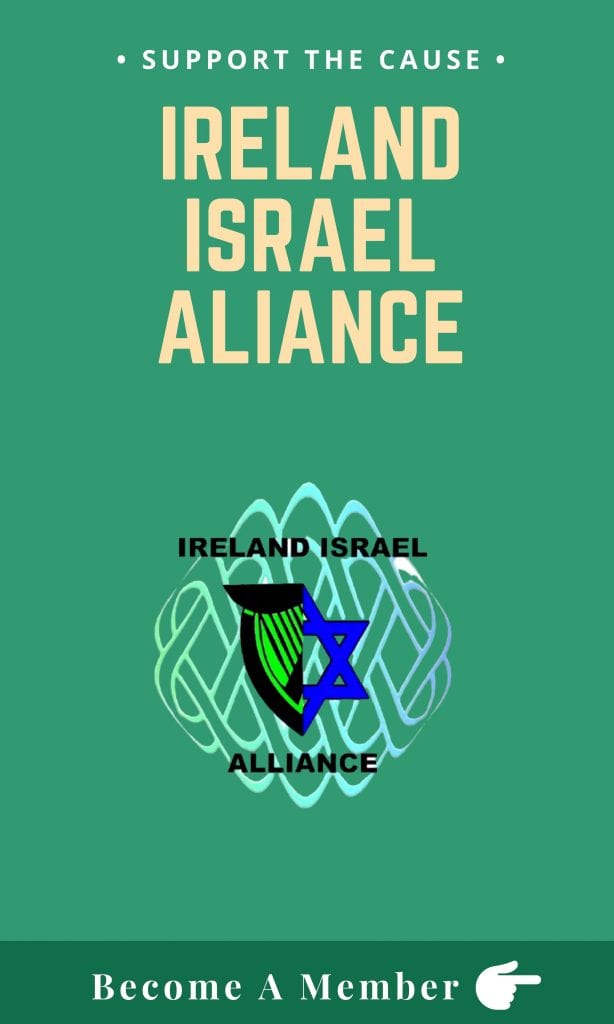
No one who has witnessed the beginnings of diplomatic relations between the United Arab Emirates and Israel under the auspices of the Abraham Accords can deny the importance and potential value of interfaith dialogue.
For that reason, I’m glad to see that Christians, Jews and Muslims in Ireland have, after a process of dialogue, issued a booklet that explains the tenets of the three faiths in a readable text, titled “Pocket Facts Guide for Jewish, Christian and Muslim People.”
The booklet is distributed by the Three Faiths Forum in Cork, Ireland. It’s a group of Christians, Jews, and Muslims dedicated to creating “a space where people of faith can dialogue openly and respectfully” and “come to a better understanding of each other’s faith and work together to enhance tolerance, co-operation and friendship.”
Still, after looking at the text, I just can’t get over the suspicion that the Christians who were involved with the creation of the booklet were more interested in being liked than giving voice to tenets of their faith. Sometimes, Christians are so intent on promoting peace between the three Abrahamic Faiths that they go soft when it comes time to proclaim the tenets of their religion and to acknowledge the Jewish roots of their faith.
I hope readers will forgive my nervousness when I report for example, that the booklet includes the phrase “Peace Be Upon Him (PBUH)” after the reference to Mohammed and includes an affirmation of Mohammed’s status as the messenger of God but does not mention that Christians regard Jesus as the son of God.
The text does affirm that Christians “belief in one God: Father, Son and Holy Spirit (the Trinity),” but does not state explicitly who the son is. It describes Jesus of Nazareth as “the Messiah” who was crucified, died and was resurrected three days later, but there’s no direct reference to his sonship.
That seems odd, given that if you asked Christians what the central tenet of their faith is, the belief that Jesus is the son of God would be, for most Christians, the first belief enunciated. It provides a logical underpinning for the bedrock assertion of Christianity that when you minister to the needs of people in need, you are ministering to the presence of God Himself.
Maybe I’m being too suspicious, but I just cannot help wondering if Jesus’s status as the son of God was downplayed in this document out of a misplaced desire to be nice. The belief that Jesus is a prophet but not the son of God is a well-established belief in Islam.
In fact, the notion that Jesus is the son of God is, for Muslims, an example of shirk, or the sin of ascribing a partner to God. The notion that Jesus is intimately one in being with God is, well, blasphemous to Islam. Historically, Christians have had no qualms enunciating the elements of their faith that are blasphemous to Jews in their presence.
Given my suspicious mind, I can’t help but wonder why neither Moses nor Abraham are mentioned in the description of Judaism. And I can’t help but wonder why the Jewish roots of the Christian faith are nowhere mentioned in the booklet.
And while the Quran and the Hadiths, the scriptural sources of authority within Islam, are mentioned in the booklet, the scriptural sources of Christianity and Judaism are downplayed. To be fair, the booklet mentions the Gospels, but there’s no mention of the Bible for either religion. Readers are left with the clear impression that Islam is rooted in a written text. Judaism and Christianity? Not so much.
Still, I’m hopeful. The real test of the process initiated by the Three Faiths Forum will be what happens next. Will further dialogue organized by the Three Faiths Forum in Cork promote greater understanding between Jews and Muslims and a more merciful attitude toward Israel on the part of Muslims in Ireland, just as the Abraham Accords did in the Middle East?
Dexter Van Zile is Shillman Research Fellow for the Committee for Accuracy in Middle East Reporting and Analysis, a U.S.-based media monitoring organisation that addresses news coverage of conflict in the Holy Land. Dexter will be speaking at our “Interfaith Dialogue: What Effect Does It Have On Israel’s Legitimacy?” webinar next Thursday 7th January at 19:30 (Ireland Time). Please click here for more details.




